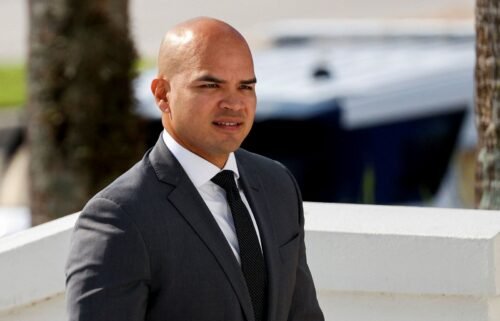Are we settling for a flawed justice system?
“I wouldn’t wish this on my worst enemy.”
That is what Deandre Somerville tearfully told a Florida judge after being thrown in jail for 10 days for oversleeping and missing jury duty. We all know jury duty can, at times, be challenging to work into our busy schedules, but it’s our civic duty and rules are rules. But JAIL for missing it? The judge in this case seemed to be trying to make an example of this law-abiding 21-year-old who cares for his disabled grandfather when he isn’t volunteering in his community, and as you can imagine, people were outraged.
Judge John Kastrenakes, in a statement to HLN, called Somerville’s situation “vastly different than someone who merely does not come in when called to serve,” because he didn’t just oversleep, but never showed up and didn’t answer multiple calls from the court. Kastrenakes says when asked why he didn’t show up, Somerville told the court, ” it wasn’t important.”
But in an interview with me on HLN’s “On the Story,” Somerville said that his comments were misinterpreted. “I never said it wasn’t important. My exact words were, I didn’t understand — I didn’t quite understand the importance of jury duty. I never stepped foot in a courthouse, I never been to jury duty, even though it was slightly explained to me, I still never knew the importance. But I know after serving the 10 days, granted I thought it was harsh, I quickly learned that jury duty is really important,” Somerville said.
The message was received loud and clear, he told me. But did it take putting this young man with no criminal record in jail to send it? Did it take burdening him with, at the time, a criminal record that would taint his future forever? His heartfelt apology included a mea culpa to the court for delaying the trial by 45 minutes. Somerville apologized and the judge, to his credit, realized the perceived heavy-handed gesture may have gone too far.
Kastrenakes dropped Somerville’s probation and cleared his record. In his order to vacate, the judge wrote that “given the abundant publicity surrounding Somerville’s case, I have concluded that the importance and seriousness of a sworn juror abiding by the law has been made clear.”
Somerville told me that the first thing he did after hearing the judge’s reversal was to drop to his knees and pray. “I thanked God. One of my biggest concerns, going on interviews and explaining, you know, why I was in jail … It was something I just felt like, dang, I have to live with that for the rest of my life. So to get that news out, I was real happy,” Somerville said.
Still, the lasting effects on this young man can’t be dismissed. During his time served, Somerville told me he witnessed a bunk mate having a seizure, fights breaking out and a man getting beat up in front of him.
What Kastrenakes did in order to send a loud and clear message to Somerville has some asking the question, would he have done this is if Somerville wasn’t a young black man? At least one lawmaker has filed a complaint and is asking for an investigation to get an answer.
“Judge Kastrenakes acted in an unprecedented manner to unfairly punish one individual for a minor transgression, singling him out as an example solely because of his race,” Florida state Sen. Bobby Powell said in a statement.
I reached out to the judge for comment on the outrage surrounding his decision and Powell’s accusations, his spokesperson told me “Judge Kastrenakes will not be responding publicly on this matter at least until the aforementioned complaint has been addressed and resolved.”
To be sure, it’s unclear whether race was a deciding factor, but public outcry pointed to the racial disparities in the criminal justice system.
For many onlookers, this was the question at hand: If 10 days in jail is such an important lesson on why not to oversleep for jury duty, then what is the lesson for lives lost?
Remember Ethan Couch? The teenager was driving drunk on a restricted license when he lost control of his speeding car and killed four people, paralyzing another. A judge bought his lawyer’s arguments that he was too rich to know better. Couch was dubbed the affluenza teen. He got probation, which he violated and finally served two years.
What’s the lesson for a DUI if you’re too pretty for jail?
That was Lauren Cutshaw’s argument. The South Carolina real estate agent was pulled over for driving drunk and her whine-laced rant went viral. She argued to arresting officers that she couldn’t go to jail because she was too pretty. Cutshaw got to keep her license. Granted she didn’t kill anyone, but she could have.
However, Zoe Reardon did. The teenager killed three people, including a mother and her 3-month-old baby. She was facing distracted driving charges in March. She claimed she wasn’t on her phone and that she just didn’t see the victims crossing the road at night. This is despite a text to her father about dinner three minutes before the crash.
She pleaded guilty and got probation. Not a day behind bars.
The outcome of these cases drew harsh criticism as the public pointed to a glaring similarity: they were all young and white.
I spend a lot of time bringing you stories of a justice system missing the bigger picture. A judge’s discretion in sentences has led to many injustices — hello Brock Turner. Many acknowledge that the justice system is flawed, but concede it’s the best one we’ve got. Should we settle for that?


